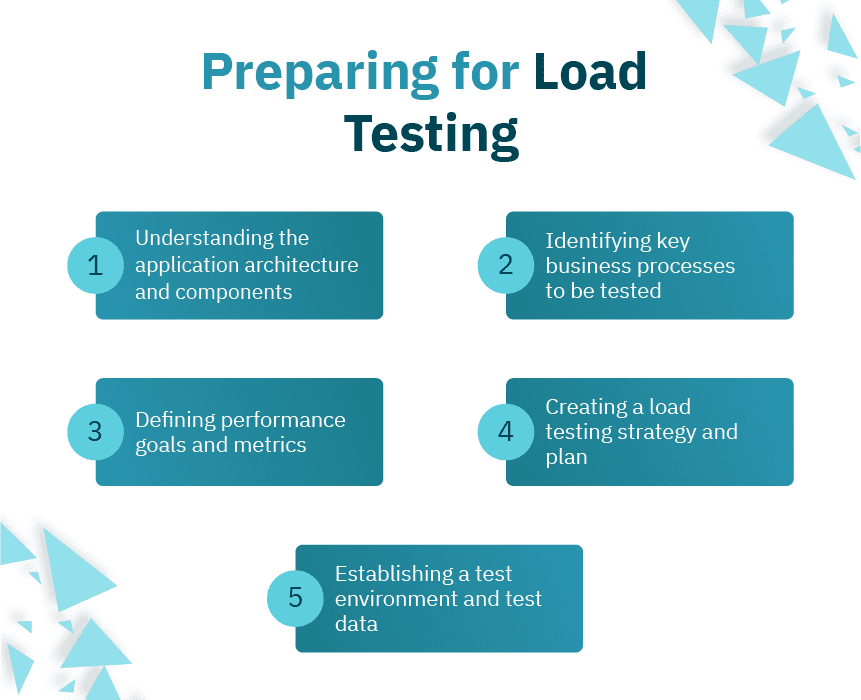What is Oracle EBS Load Testing?
Oracle EBS Load Testing is the process of simulating the load on an Oracle EBS application to test its performance and scalability. This is done by using a load testing tool to generate a large number of virtual users that interact with the application. The load testing tool collects data on the application’s performance, such as response times, throughput, and errors. This data can be used to identify performance bottlenecks and to ensure that the application can handle the expected load.
Why is Oracle EBS Load Testing Important?
Oracle EBS Load Testing is important for a number of reasons.
- It can help to ensure that the application can handle the expected load. This is important for applications that are used by a large number of users or that are used for critical business processes.
- Load testing can help identify performance bottlenecks. This can help improve the performance of the application and to reduce the risk of outages.
- Load testing can help improve the quality of the application. It can help identify errors that may not be found during unit testing or functional testing.
How to Perform Oracle EBS Load Testing?
- Identify the application’s critical functions. The first step is to identify the application’s critical functions. These functions are used by most of the users for critical business processes such as order management, inventory management, financial transactions, or HR processes.
- Determine the expected load. The next step is to determine the expected load on the application. This can be done by looking at historical data or by making estimates based on the number of users and the amount of data that is expected to be processed.
- Choose a load testing tool. There are a number of load testing tools available on the market. The choice of tool will depend on the specific needs of the project.
- Create a load test script. The next step is to create a load test script. This is a file that contains the instructions for the load testing tool. The script will specify the number of virtual users, the type of load, and the duration of the test.
- Run the load test. Once the load test script is created, it can be run. The load testing tool will generate the specified number of virtual users and will interact with the application.
- Analyze the results. The final step is to analyze the results of the load test. This will involve looking at the data collected by the load testing tool, such as response times, throughput, and errors. This data can be used to identify challenges and improve the performance of the application.
The Benefits of Oracle Load Testing in EBS
- Validating the system’s performance: Load testing helps in verifying whether the Oracle EBS system meets the performance requirements defined by the organization. It provides insights into response times, transaction throughput, and resource utilization.
- Identifying and resolving bottlenecks: Load testing uncovers performance bottlenecks, such as slow queries, inefficient code, or configuration issues. By identifying these bottlenecks, organizations can optimize the system’s performance and improve overall user experience.
- Assessing scalability: Load testing allows organizations to determine if the Oracle EBS system can handle an increasing number of concurrent users and growing transaction volumes. This assessment helps with capacity planning and ensures that the system can scale effectively as the business expands.
- Enhancing reliability: Load testing helps identify any stability or reliability issues in the Oracle EBS environment. By subjecting the system to varying loads and stress levels, organizations can uncover weaknesses and address them before they impact business operations.
Key Considerations While Performing Oracle Database Load Testing
When conducting load testing in Oracle EBS, several key considerations should be kept in mind.
- Test environment replication: It is essential to replicate the production environment as closely as possible to ensure accurate load testing results. This includes hardware, software configurations, network settings, and test data.
- Realistic user behavior: Load tests should simulate user behavior accurately by incorporating realistic thinking times, user actions, and transaction mixes. This ensures that the load test accurately reflects real-world usage scenarios.
- Load testing tools: Utilizing specialized load testing tools designed for Oracle EBS is recommended. These tools provide features specific to Oracle EBS, such as script recording, parameterization, and result analysis, making load testing more efficient and effective.
- Test data management: Ensuring appropriate test data is available for load testing is crucial. This includes having representative data sets and considering data privacy and security requirements.
- Collaboration with stakeholders: Load testing involves collaboration between different teams, including application administrators, database administrators, and performance testing specialists. Coordinating efforts and sharing knowledge among these stakeholders is vital for successful load testing in Oracle EBS.
By considering these key aspects, organizations can conduct comprehensive and effective load testing in Oracle EBS. Enabling them to optimize performance, enhance scalability, and ensure a robust system for their business processes.

Real Life Examples: Load Testing Has Proved Helpful!
Load testing has proven to be valuable for many big organizations in identifying performance issues, ensuring system reliability, and optimizing their applications.
Here are a few real-life examples where load testing has helped organizations:
Amazon
Amazon, one of the world’s largest e-commerce platforms, relies heavily on load testing to ensure smooth and uninterrupted customer experiences during peak shopping seasons like Black Friday and Cyber Monday. Load testing helps Amazon identify performance bottlenecks, optimize their infrastructure, and handle high volumes of concurrent user traffic.
Netflix
As a popular streaming platform, Netflix performs load testing to ensure seamless streaming experiences for millions of users worldwide. By simulating high user loads and measuring system responses, Netflix can identify performance issues, optimize its content delivery network (CDN), and ensure uninterrupted streaming across various devices.
Facebook, a social media giant with billions of active users, conducts load testing to assess the performance and scalability of its platform. Load testing helps Facebook identify any potential performance bottlenecks and optimize their infrastructure to handle the immense user load during peak usage periods.
Airbnb
Airbnb, a global online marketplace for accommodations, utilizes load testing to guarantee a smooth booking experience for its users. By simulating heavy loads and peak traffic scenarios, Airbnb can identify and address performance issues, optimize their website and mobile applications, and ensure seamless booking processes.
Google, a leading search engine and technology company, performs extensive load testing to maintain the performance and reliability of its services. Load testing helps Google optimize their search algorithms, infrastructure, and data centers, ensuring fast and accurate search results even during high user traffic periods.
Uber
Uber, a popular ride-sharing platform, relies on load testing to deliver real-time experiences for millions of users worldwide. Load testing enables Uber to assess the performance of their mobile applications, optimize their backend systems, and handle surges in ride requests during peak hours or events.
What Tools Can Help?
Choosing test automation tools for Oracle load testing provides numerous advantages. These tools, such as Opkey offer a user-friendly interface, simplify the creation and execution of test scripts, and provide features specifically designed for load testing Oracle applications. They automate repetitive tasks, enable efficient workload modeling, and generate comprehensive performance reports, ultimately saving time, and effort while ensuring accurate and reliable results.








